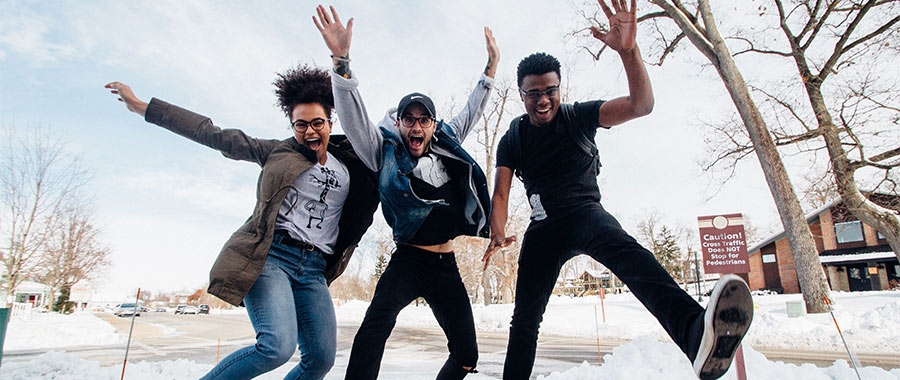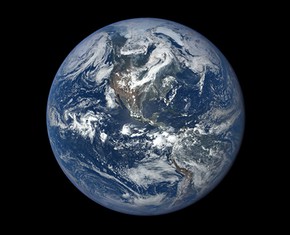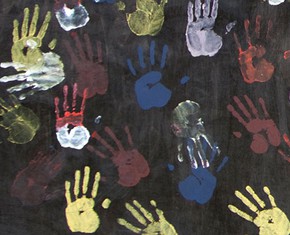The views expressed in our content reflect individual perspectives and do not represent the authoritative views of the Baha'i Faith.
My friend Sewit and I met years ago at a seminar for Baha’is studying in post-secondary educational settings.
The Institute for Studies in Global Prosperity (ISGP) provides those in college, university, or trade training programs with an opportunity to explore underlying beliefs, attitudes, and aims that affect the way we both function at the individual level and also the ways we contribute to our wider society.
Naturally, topics around inequality, race, and justice come up. Having the specific focus of inequality and sociology, Sewit can seamlessly and thoughtfully contribute to these parts of our conversations. Below she extends her insight as to how the Baha’i Faith has shaped her participation in her university program and her school’s black community:
Q: What are you studying? Can you tell us a little bit about the culture of your school or program?
A: I studied Sociology with a concentration in Inequality and Social Change and minored in Conflict Analysis and Resolution and Legal Studies. The university I attended has a diverse student body, but like many institutions, black and brown people created spaces of solidarity, community, laughter and joy.
Q: Has being a Baha’i given you a unique perspective in your program/major? If so, how?
A: Definitely, especially in conversations about social justice and building new social systems. The conversations about creating a new world were not foreign to me because of the Baha’i writings. Having detached but passionate dialogue was not foreign to me, and most importantly having a humble posture of learning, as the Baha’i teachings suggest, became so essential in my understanding and implementation of the theories I learned.
Q: Do you fuse your education with the Baha’i focus on community-building? If so, how?
A: I realized how beautiful my educational experience was when having conversations with my friends. My major and minor aimed to not only have conversations about theories, but were also action oriented. We continuously had conversations about grassroots initiatives, sustaining community life, and how to create community in different localities while preserving the culture of that community. I would often talk about things in the classroom that I learned from the Baha’i teachings and they were received with such joy because my peers had similar visions for effective community-building.
Q: What do you contribute to your school’s community? Do you feel your Baha’i identity affects how you contribute to the community you are in? If so, in what ways?
A: Looking back at my college experience, I think the most important thing I did was to be myself. Being a Baha’i means that the college experience is not what is reflected in the expected American media. Remaining firm in my faith and my beliefs allowed my community to respect and understand the diversity of thought and belief that could commune together. Furthermore, it allowed for the basic tenets of the Baha’i faith to be explored in workshops for developing black student leaders, in conversations with university employees on the importance of representation and diversity, and in intimate conversations with some of my closest friends.
Q: Do you have a favorite quote or teaching?
A: The Baha’i process of consultation, action, and then reflection is one of the most beautiful and important teachings and practices of the Faith.
Q: Why is this so impactful for you?
A: It has affected my interactions and outlook on community and relationship building. This framework has allowed me to become as detached as I can when presenting thoughts and ideas to friends, team members, and fellow collaborators. Having this process as my foundation has been essential for my contribution to community-building efforts on campus and in the community to be effective.
Q: How does it affect the way you operate as a young person and a student?
A: It has made me love collective growth and consider it more than my own needs and interests. Being a young person who is passionate for liberation and redistribution of resources for marginalized communities, it has been important for my well-being to have this framework when approaching projects and ideas.
Q: Could you describe a story or description of any community-building efforts you have seen or been a part of in your community? Do any stand out as particularly inspiring?
A: Last year during Black History Month we wanted to remind people that blackness should not only be celebrated and remembered once a year, but should be centered and present throughout the whole year. We created a mural on campus, which said “Black Lives Matter 365.” The community essence was ever present because there was music, dancing and unconstrained expression as we laughed and painted the mural. While small, this was an act that brought the community together—reaffirming old bonds and creating new bonds of friendship.
















Comments
Sign in or create an account
Continue with Googleor